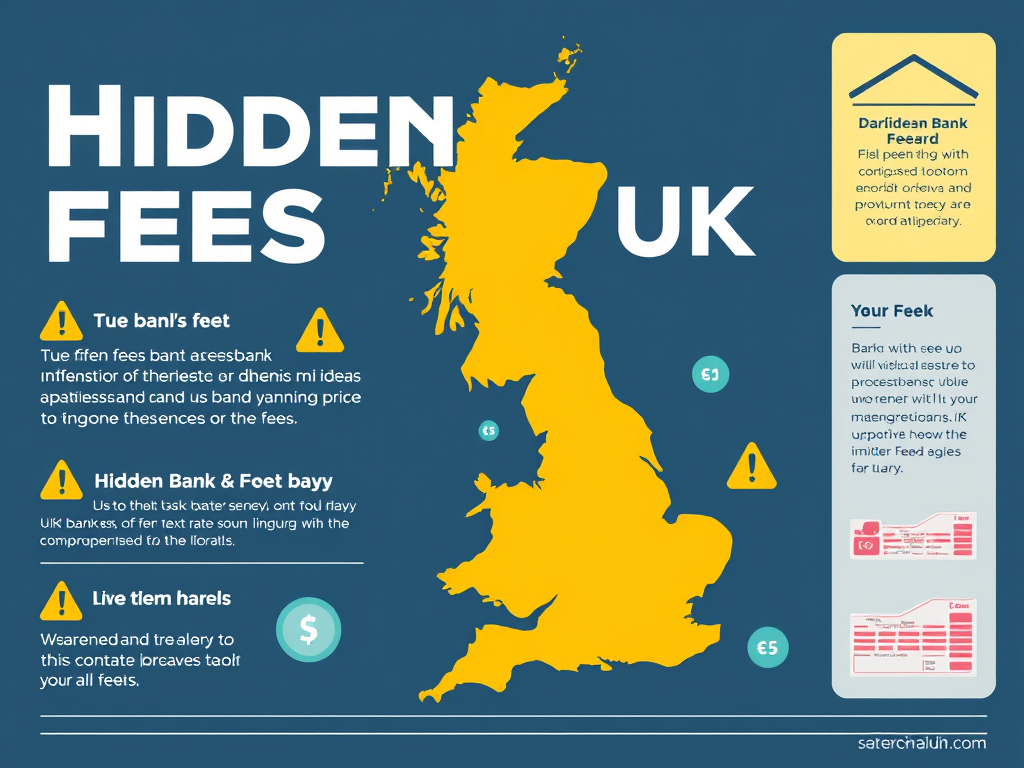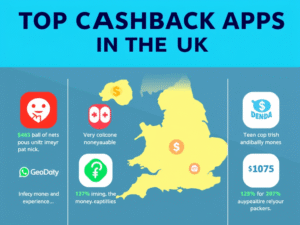Uncover common hidden bank fees in the UK and learn practical tips to spot and avoid them. Protect your money in 2025 with our expert guide and real-life stories.

Real Story: Lisa’s Hidden Fee Shock
Lisa, a freelance graphic designer in Birmingham, found herself repeatedly paying unexpected charges on her bank statement. “I thought my account was free, but every month, there was a new fee I hadn’t noticed,” she says. After some digging, Lisa learned about maintenance fees, overdraft charges, and inactivity penalties that silently drained her balance. Once she switched to a no-fee account and started monitoring statements closely, her monthly expenses dropped drastically.
What Are Hidden Bank Fees?
Hidden bank fees are charges that banks apply often without clear upfront notice. They can quietly reduce your balance and add up over time if you’re not vigilant.
Common examples include:
- Account maintenance or service fees
- Minimum balance fees if your account dips below the required amount
- Overdraft fees for spending beyond your limit
- Inactivity or dormancy fees when accounts stay unused
- Foreign transaction fees on card purchases abroad
- Paper statement or cheque processing fees
- Stop payment fees on cancelled transactions
- Early account closure fees
How to Spot Hidden Bank Fees
- Regularly check your bank statements: Look for unfamiliar deductions or fees.
- Read your terms and conditions: Most banks outline fees here, though they may be hidden in fine print.
- Monitor account alerts: Set up notifications for low balances or unusual spending.
- Ask your bank directly: Don’t be shy to question charges and request fee explanations.
- Use budgeting apps: They can flag fees and unusual transactions automatically.
Table: Common Hidden Bank Fees and How to Avoid Them
| Fee Type | Typical Cost | How to Spot | Tips to Avoid |
|---|---|---|---|
| Account Maintenance | £5-£15/month | Monthly deductions listed on statements | Choose zero-maintenance accounts |
| Minimum Balance | £5-£25/month | Fees triggered when low balance | Maintain minimum balance or switch accounts |
| Overdraft | Variable interest/fees | Charges on overspending | Track balance carefully; opt-out of overdraft |
| Inactivity Fees | £5-£20/month | Charged after months of no activity | Regularly use or close inactive accounts |
| Foreign Transaction | 2-3% of transaction | Unexpected fee on foreign card use | Use no-foreign-fee cards or local currency |
| Paper Statements | £1-£3 per statement | Extra fee if not paperless billing | Switch to e-statements |
| Stop Payment | ~£10-£15 | Fee for cancelling cheques or payments | Plan payments carefully |
| Early Closure | £10-£50 | Charged if account closed early | Keep accounts open for recommended periods |
Why Do Banks Charge These Fees?
Banks use fees to cover operational costs and generate profit. Some fees encourage certain customer behaviours, such as maintaining higher balances or using digital services.
How to Avoid Hidden Bank Fees: Smart Tips for 2025
- Choose fee-free or digital banks like Monzo, Starling, or similar challenger banks with transparent charges.
- Always opt for e-statements and alerts.
- Maintain required minimum balances if your account demands it.
- Avoid overdrawing your account or use a buffer to prevent accidental overdrafts.
- Use your bank’s fee calculator tools or apps to predict and monitor potential fees.
- When travelling, use cards that offer no foreign exchange fees and notify your bank of travel.
- Close accounts you no longer use before inactivity fees apply.
FAQs About Hidden Bank Fees
Q: Are hidden bank fees legal?
Yes, banks disclose fees in their terms. However, regulatory bodies increasingly insist on transparency and fairness.
Q: How can I claim back wrongly charged fees?
Contact your bank promptly, provide evidence, and if needed escalate to the Financial Ombudsman.
Q: What are the best fee-free accounts in the UK?
Many digital banks like Starling, Monzo, and others offer zero monthly fees and low charges overall.
Q: Can switching banks help avoid fees?
Yes, switching to challenger banks or student accounts often reduces fee exposure.
Call to Action
Don’t let hidden bank fees quietly drain your cash. Regularly review your bank statements and switch to transparent accounts that suit your needs. Share this guide with friends and family and visit uk.savewithrupee.com for more money-saving tips and financial help tailored for UK residents in 2025. Stay informed, spend smarter, and keep more of your money where it belongs—in your pocket!






